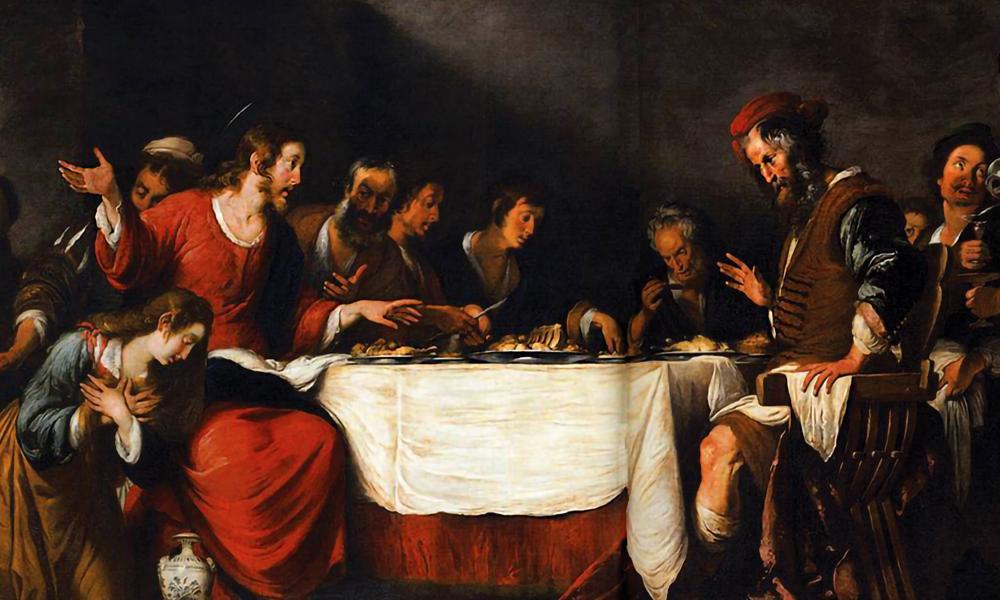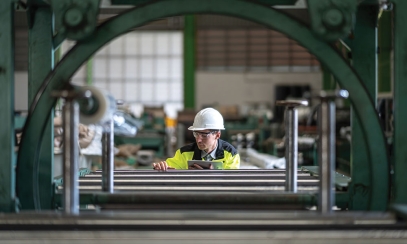
Mercy Begins With Spiritual Conversion
And he told them a parable, “Can a blind person guide a blind person? Will not both fall into a pit?”…
“Why do you notice the splinter in your brother’s eye, but do not perceive the wooden beam in your own? How can you say to your brother, ‘Brother, let me remove that splinter in your eye,’ when you do not even notice the wooden beam in your own eye? You hypocrite! Remove the wooden beam from your eye first; then you will see clearly to remove the splinter in your brother’s eye.” (Lk 6:39,41-42)
Pope Francis has made it clear that the Church’s mission of being a witness to mercy begins with our own spiritual conversion. We simply cannot witness to mercy if we have not experienced the merciful love of Christ. We cannot experience the merciful love of Christ if we are blind to our own sinfulness and need for mercy, a mercy that is always offered to us in the forgiveness of our sins.
The call to conversion
Each of us is called to conversion by Jesus. The first conversion consists in our hearing the Gospel – our encountering Christ, our believing in him, and our deciding to order our lives accordingly. Baptism, of course, is the primary place for this fundamental conversion. In baptism, we renounce evil and win salvation, i.e., the forgiveness of all our sins and the gift of new life. This first conversion is completed when we receive the gift of the Holy Spirit in confirmation and the gift of the body and blood of Christ in the Eucharist. These sacraments of initiation together leave us “holy and without blemish.”
However, the new life granted to us in Christian initiation does not mean that we will remain “holy and without blemish.” Our human nature remains frail and weak. What’s more, we still tend toward sin, which makes a holy life oriented toward eternal life a continuous struggle.
Nonetheless, Christ ceaselessly calls us, through the work of the Church, to turn anew from our sinfulness through repentance. Through the gift of grace, we are invited to respond with a contrite heart to the merciful love of the God who has loved us first. This merciful love calls the sinner to conversion, which is, in fact, the most concrete expression of the presence of mercy.
Consider the Gospel of Luke 7:36-50. While Jesus is dining at the house of a Pharisee, a sinful woman stands behind him bathing his feet with her tears and anointing them with oil. When the Pharisee objects, Jesus replies, “her many sins have been forgiven; hence, she has shown great love. But the one to whom little is forgiven, loves little.” In other words, the love the woman shows Jesus is the evidence of her conversion – the evidence that her sins have been forgiven through the encounter with God’s mercy.
A sacrament of healing
The United States Catholic Catechism for Adults indicates Jesus entrusted this ministry of reconciliation to the Church. In particular, the sacrament of penance is God's gift to us so that any sin committed by us after baptism can be forgiven. In confession, we have the opportunity to repent and recover the grace of friendship with God. It is a holy moment in which we place ourselves in his presence and honestly acknowledge our sins, especially mortal sins.
With absolution, we are reconciled to God and to the Church. The sacrament helps us stay close to the truth that we cannot live without God. "In him we live and move and have our being." (Acts 17:28) While all the sacraments bring us an experience of the mercy that comes from Christ's dying and rising, it is the sacrament of reconciliation that is the unique sacrament of mercy because it is an experience of the gift of God's boundless mercy.
In closing
The Church’s mission of being a witness to mercy begins with our own spiritual conversion. The first step to our own spiritual conversion is the recognition of our own sinfulness and of our need for God’s grace – a grace freely offered through the sacrament of reconciliation. God’s merciful love is what gives us the confidence that our sins will in fact be forgiven granting us salvation, which means that we are made whole; we are healed. It is only then that we are free to be an authentic witness to others of this same life-giving mercy.



